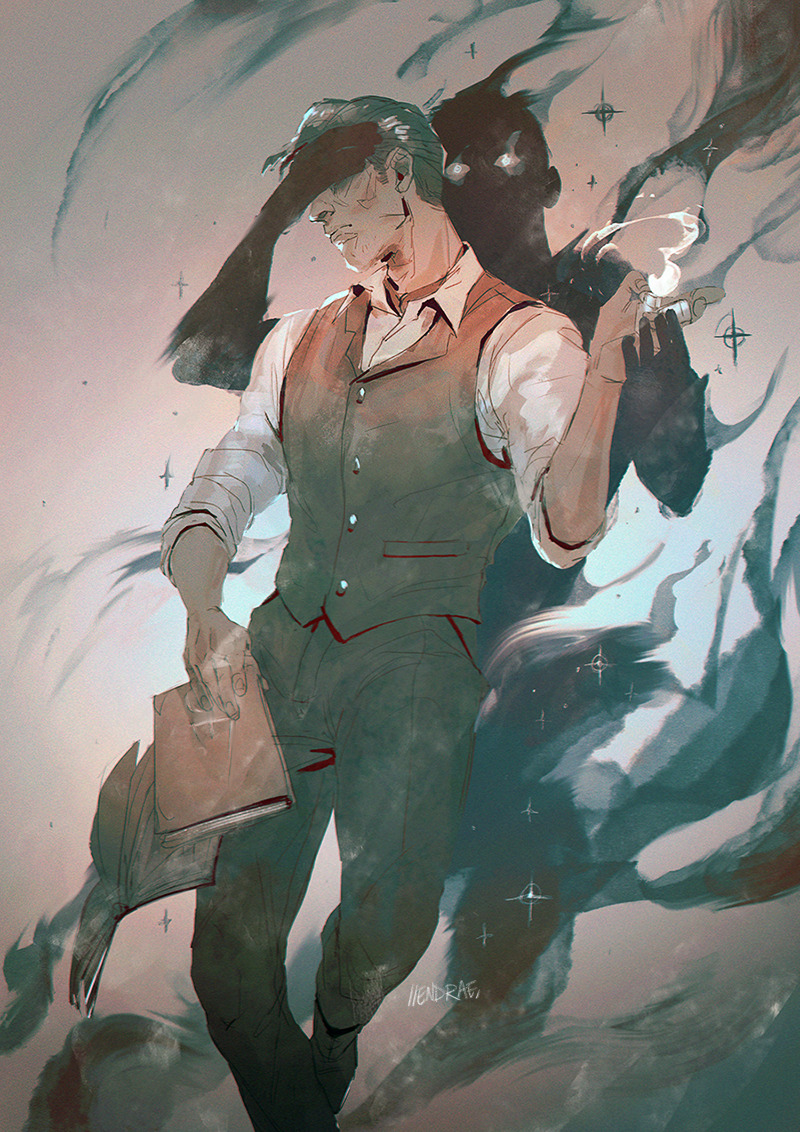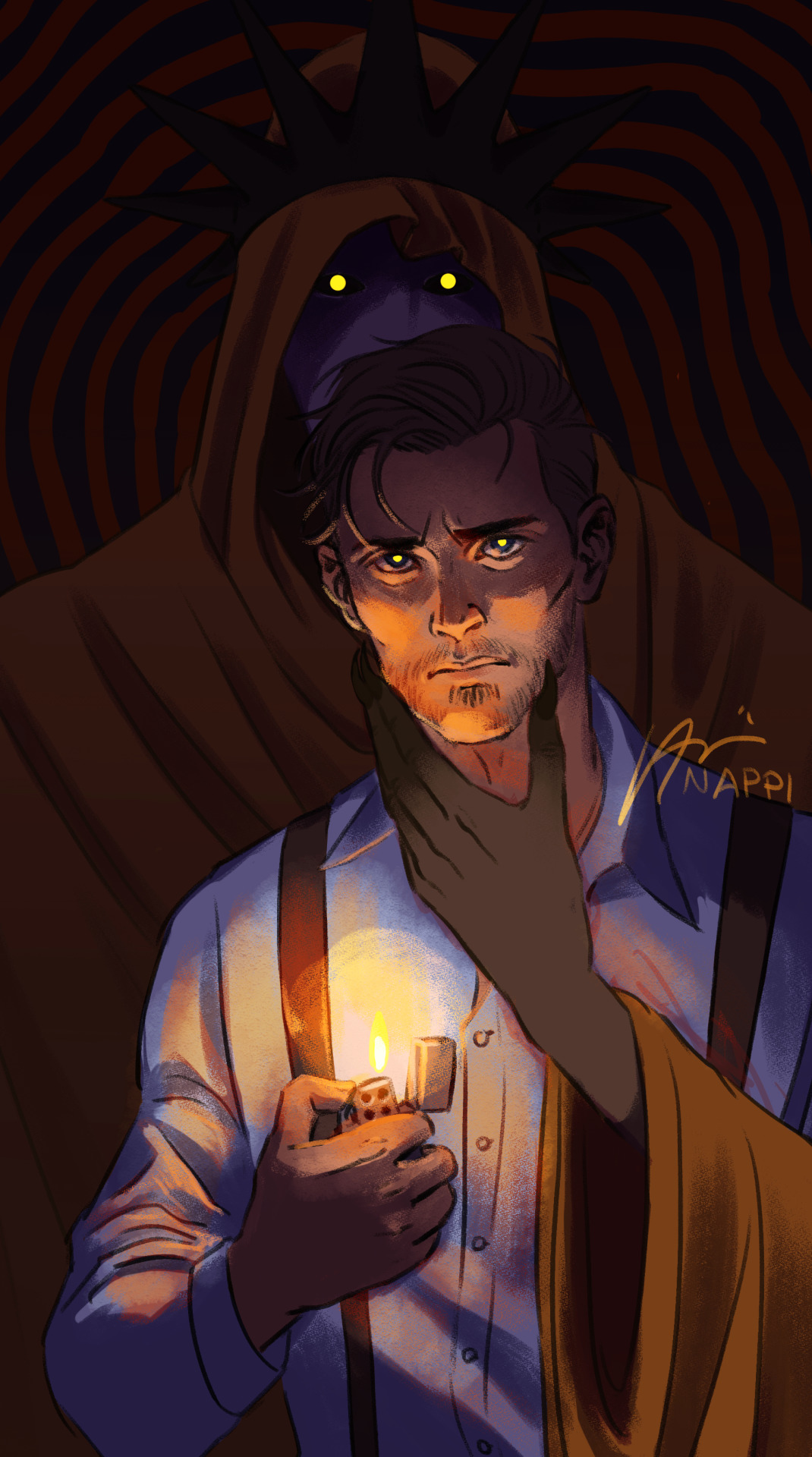Malevolent has one of the most gripping opening scenes I’ve heard. Private investigator Arthur Lester wakes up in his office, completely blind and with no memory of who he is. Oh, and he has a demonic voice in his head.
As if that isn’t intriguing enough, the entity inside his head has control of his vision, so Arthur can only “see” what’s around him through the narration of this disembodied voice. It’s a unique framing device that would only work in an audio medium, and I love it.
The show also has some incredible fan art, which is admittedly how I heard about it in the first place. I mean seriously, look at this:
The first season follows Arthur and this entity as they try to figure out how to separate themselves, how the sinister cult that keeps following them relates to Arthur’s last case, and who the hell this ominous King in Yellow figure is that keeps fucking with them.
The story is equal parts compelling mystery and deeply unsettling horror, with a dash of really neat worldbuilding thrown in for good measure. The pacing of the reveals was expert, and a scene could flip from humor to horror in an instant without feeling jarring.
However, after making it halfway through the second season, I’ve decided not to continue with Malevolent, largely due to two reasons.
First, Malevolent is funded through a Patreon where supporters can vote on every major decision Arthur makes. The show’s creator then abides by the results and continues with the story. This is both a really cool way to allow audience participation, and an unfortunate shattering of the fourth wall that breaks my suspension of disbelief. It’s hard to fully believe Arthur is a person making tough choices when I know he’s just acting out the votes of the show’s Patrons. However, I was still able to have fun with the show at this point.
The second (and more significant) reason is that the show pivots away from the aspects I enjoyed in the second season. There’s no mystery, the unsettling horror is replaced by action sequences that are difficult to follow in audio, and the worldbuilding takes an “everything but the kitchen sink” approach. I found I was forcing myself to listen to each episode and halfway through the second season I made the call to quit.
As disappointed as I was in the second season, the first season was still excellent. It’s hard for me to recommend the first season on its own though, since it ends with a major cliffhanger. But it was absolutely worth the time I spent listening.


